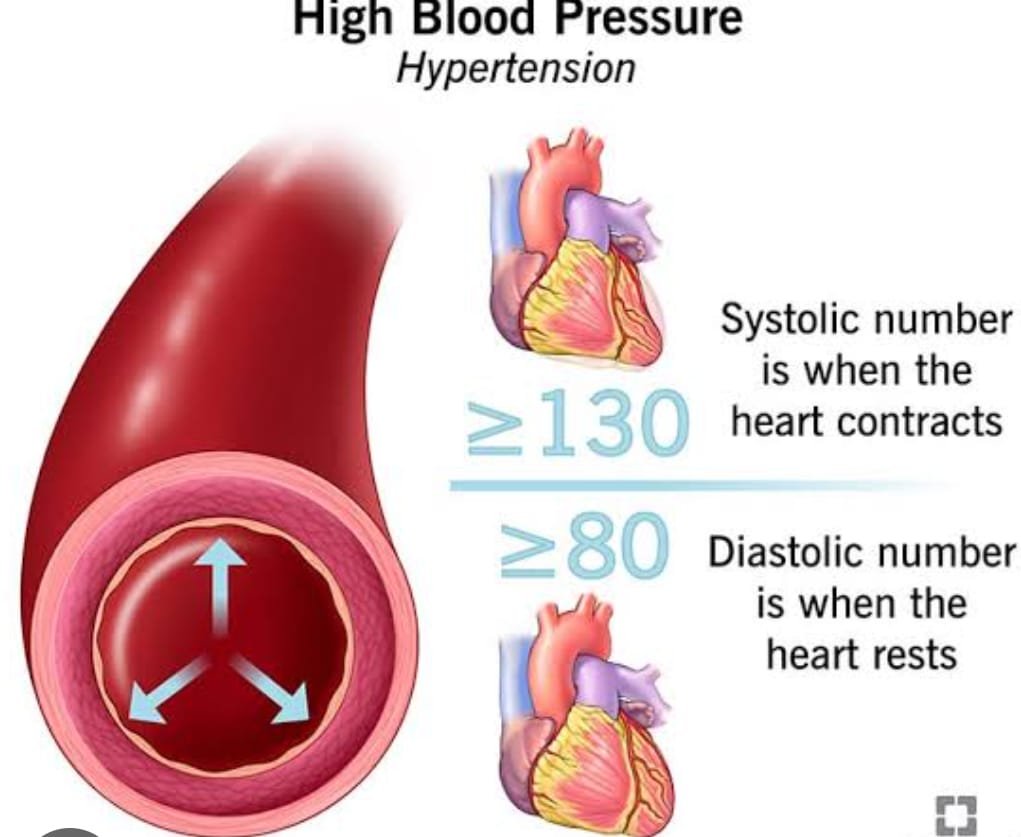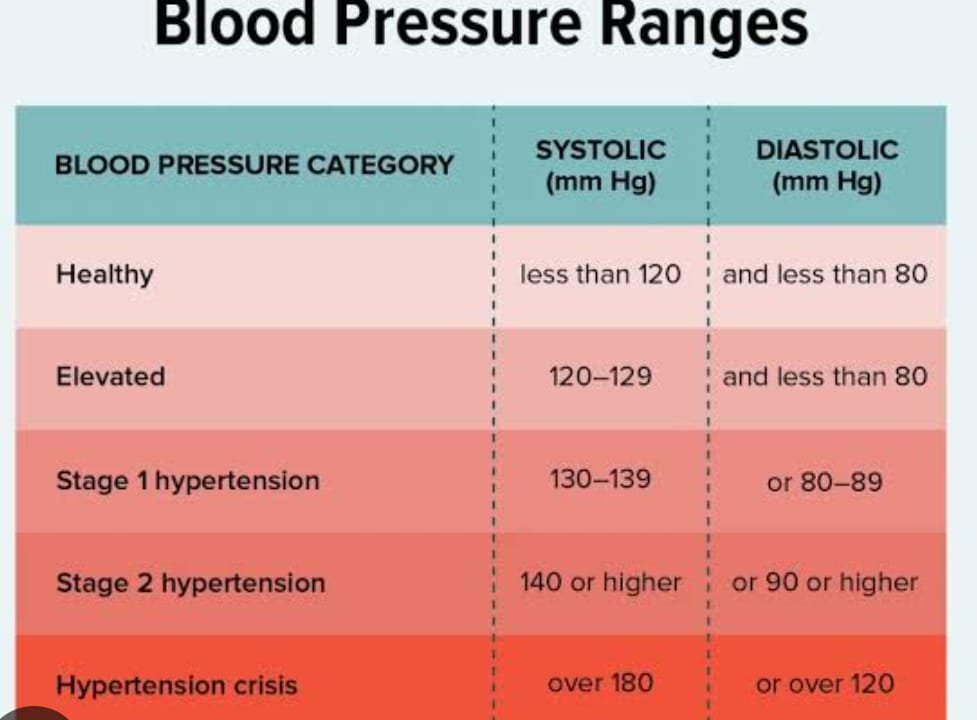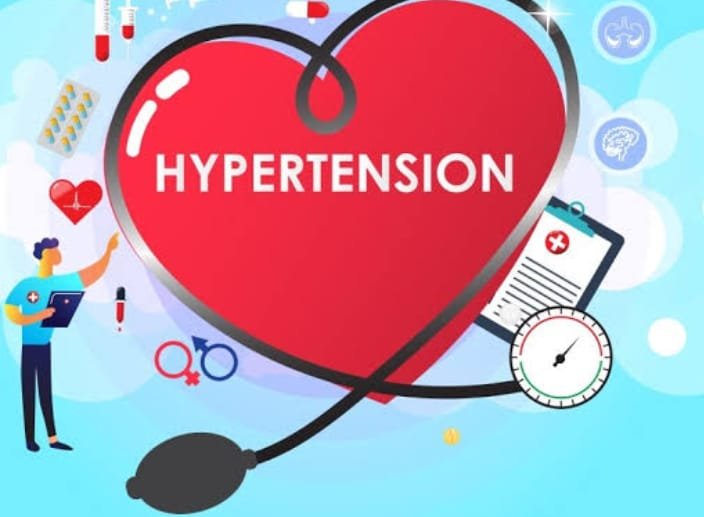HIGH BLOOD PRESSURE IS SILENT KILLER

HIGH BP
High blood pressure (hypertension) is a condition where the force of the blood against the walls of the arteries is consistently too high. It can lead to serious health issues like heart disease and stroke. Lifestyle changes, medications, and regular monitoring are common approaches for managing high blood pressure. It’s essential to address and control high BP to reduce the risk of complications. Regular check-ups with a healthcare professional are crucial for monitoring and managing BP levels.
SYMPTOMS
High blood pressure is often referred to as a “silent killer” because it may not cause noticeable symptoms for many years. However, in some cases, individuals with high BP may experience:
- Headaches: While headaches can occur, they are not a reliable indicator and can be caused by various factors.
- Nosebleeds: Rarely, high blood pressure can lead to nosebleeds.
- Shortness of breath: This may occur in severe cases.
- Dizziness or lightheadedness: Some people may feel dizzy or lightheaded, particularly when standing up.
It’s important to note that these symptoms are not exclusive to high BP and can be caused by other factors. Regular bP checks are crucial, especially as hypertension can be asymptomatic for a long time. If you experience concerning symptoms, it’s important to consult with a healthcare professional for proper evaluation and guidance.
PRECAUTIONS
HIGH BLOOD PRESSURE IS SILENT KILLER

To help manage and prevent high blood pressure, consider these precautions:
- Healthy Diet: Adopt a diet rich in fruits, vegetables, whole grains, and lean proteins. Reduce sodium intake and limit processed foods.
- Regular Exercise: Engage in regular physical activity, such as brisk walking or cycling, for at least 150 minutes per week.
- Maintain a Healthy Weight: Aim for a body weight within the recommended range for your height and build.
- Limit Alcohol: If you drink alcohol, do so in moderation. Limiting alcohol intake is generally advised for BP control.
- Quit Smoking: Smoking can raise BP and damage blood vessels. Quitting smoking is beneficial for overall cardiovascular health.
- Manage Stress: Practice stress-reducing techniques, like meditation, deep breathing, or yoga.
- Monitor Blood Pressure: Regularly check your BP at home if advised by your healthcare provider.
- Medication Adherence: If prescribed medication, take it as directed by your healthcare professional.
- Regular Check-ups: Schedule regular check-ups with your healthcare provider to monitor and manage your BP
These precautions, along with the guidance of a healthcare professional, can contribute to better BP management and overall cardiovascular health.
TREATMENT
To help manage and prevent high BP , consider these precautions:
- Healthy Diet: Adopt a diet rich in fruits, vegetables, whole grains, and lean proteins. Reduce sodium intake and limit processed foods.
- Regular Exercise: Engage in regular physical activity, such as brisk walking or cycling, for at least 150 minutes per week.
- Maintain a Healthy Weight: Aim for a body weight within the recommended range for your height and build.
- Limit Alcohol: If you drink alcohol, do so in moderation. Limiting alcohol intake is generally advised for BP control.
- Quit Smoking: Smoking can raise and damage blood vessels. Quitting smoking is beneficial for overall cardiovascular health.
- Manage Stress: Practice stress-reducing techniques, like meditation, deep breathing, or yoga.
- Monitor Blood Pressure: Regularly check your BPe at home if advised by your healthcare provider.
- Medication Adherence: If prescribed medication, take it as directed by your healthcare professional.
- Regular Check-ups: Schedule regular check-ups with your healthcare provider to monitor and manage your BPe.
These precautions, along with the guidance of a healthcare professional, can contribute to better blood pressure management and overall cardiovascular health.
HIGH BLOOD PRESSURE IS SILENT KILLER

RISK FACTORS
Several factors can increase the risk of developing high BP . These include:
- Age: The risk of high BP increases with age.
- Family History: If your close family members have or had hypertension, you may be at a higher risk.
- Race/Ethnicity: Certain ethnic groups, such as African Americans, are at a higher risk.
- Gender: Men are generally at a higher risk than pre-menopausal women. The risk evens out after menopause.
- Lack of Physical Activity: Inactivity contributes to higher BP.
- Unhealthy Diet: Consuming too much sodium (salt) and low potassium in the diet can contribute to hypertension.
- Being Overweight or Obese: Excess weight requires more blood to supply oxygen and nutrients to tissues, putting additional pressure on the arterial walls.
- Excessive Alcohol Consumption: Drinking too much alcohol can raise BP.
- Smoking: Tobacco smoke can temporarily increase blood pressure and damage blood vessels.
- Chronic Kidney Disease: Kidney issues can lead to high blood pressure.
- Sleep Apnea: Untreated sleep apnea can increase BP.
It’s important to be aware of these risk factors and, when possible, make lifestyle changes to address modifiable factors. Regular check-ups with a healthcare provider are crucial for monitoring blood pressure and assessing overall cardiovascular health, especially if you have multiple risk factors.
HOW TO SLOW DOWN HIGH BP
To help slow down or manage high blood pressure, consider the following lifestyle modifications:
- Healthy Diet: Adopt a diet rich in fruits, vegetables, whole grains, and lean proteins. Reduce sodium intake by avoiding processed foods and added salt.
- Regular Exercise: Engage in moderate-intensity aerobic exercise for at least 150 minutes per week. This can include brisk walking, cycling, or swimming.
- Maintain a Healthy Weight: Losing excess weight can significantly contribute to lowering blood pressure.
- Limit Alcohol: If you drink alcohol, do so in moderation. For most adults, this means up to one drink per day for women and up to two drinks per day for men.
- Quit Smoking: If you smoke, quitting can improve blood pressure and overall cardiovascular health.
- Reduce Stress: Practice stress-reduction techniques such as meditation, deep breathing exercises, or yoga.
- Limit Caffeine: While the link between caffeine and high blood pressure isn’t clear, it may be beneficial to limit caffeine intake, especially if you are sensitive to its effects.
- Monitor Blood Pressure: Regularly check your blood pressure at home if recommended by your healthcare provider. This can help you and your healthcare team assess the effectiveness of lifestyle changes.
Remember, it’s crucial to work closely with your healthcare provider to determine the most appropriate strategies for managing your high blood pressure. In some cases, medication may also be necessary, and your healthcare provider can guide you on the best course of action based on your individual health needs.
INSTANT SOLUTION TO SLOW DOWN HIGH BP
While there’s no instant solution to lower high BP, certain foods may have a quicker impact. Consider incorporating the following into your diet:
- Leafy Greens: Foods like spinach, kale, and Swiss chard are rich in potassium, which can help balance sodium levels and lower blood pressure.
- Berries: Blueberries, strawberries, and raspberries contain antioxidants known as flavonoids, which may contribute to BP regulation.
- Oats: Oatmeal is a good source of soluble fiber, which can help lower cholesterol levels and, indirectly, support heart health.
- Bananas: High in potassium, bananas can help regulate BP e.
- Fatty Fish: Salmon, mackerel, and trout are rich in omega-3 fatty acids, which have cardiovascular benefits, including potential BP reduction.
- Garlic: Garlic has been associated with modest blood pressure-lowering effects.
- Beets: The nitrates in beets can help dilate blood vessels and potentially lower BP
- Low-Fat Dairy: Opt for low-fat or fat-free yogurt and milk, which provide calcium and potassium.
Remember that while incorporating these foods into your diet may contribute to better heart health, it’s essential to maintain a balanced, overall healthy diet. Additionally, it’s crucial to consult with your healthcare provider for personalized advice and to discuss any dietary changes, especially if you have existing health conditions or are taking medications.
HIGH BLOOD PRESSURE IS SILENT KILLER


I am a content writer I have experience been writing news and blog articles for 5 years.